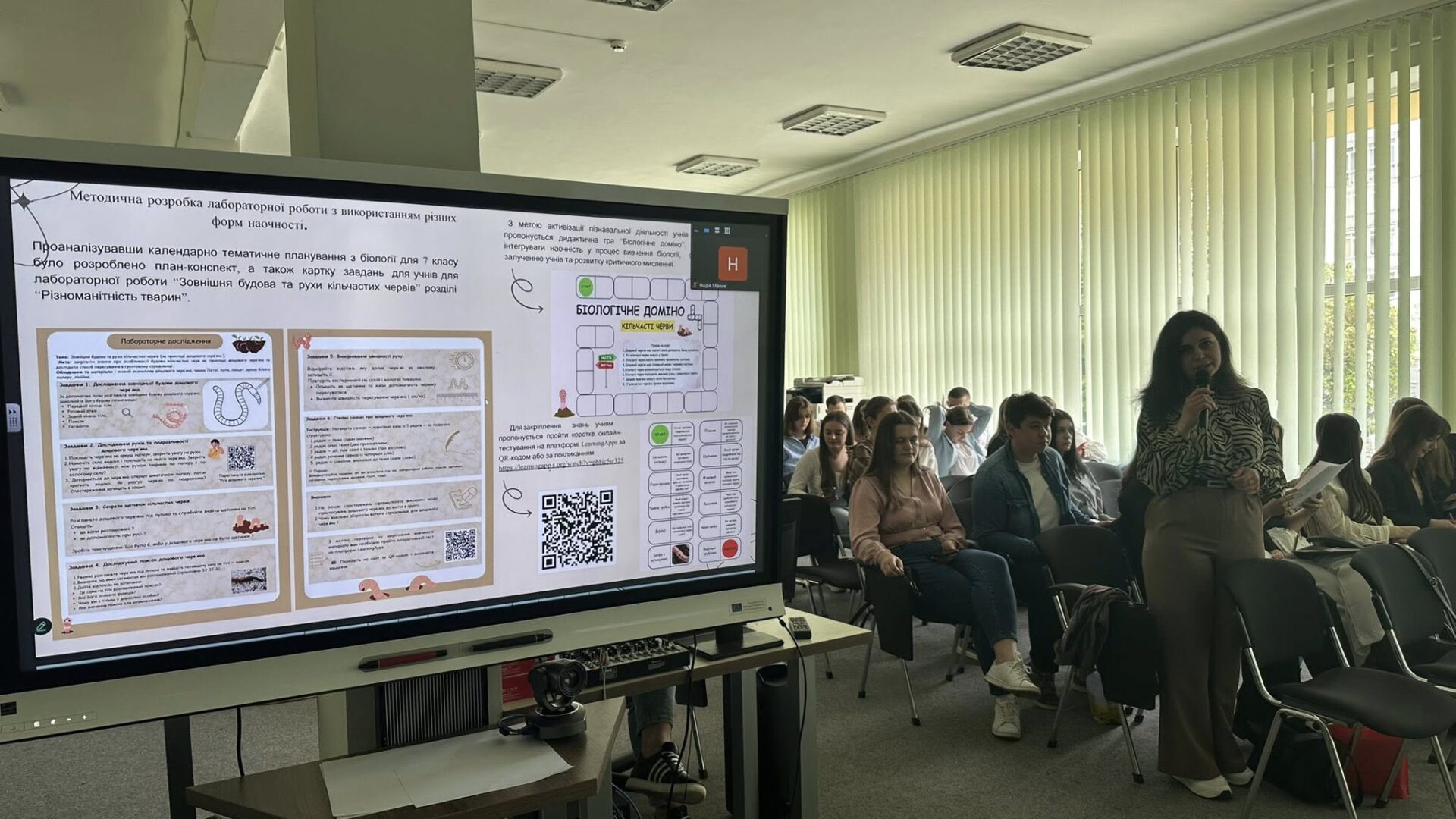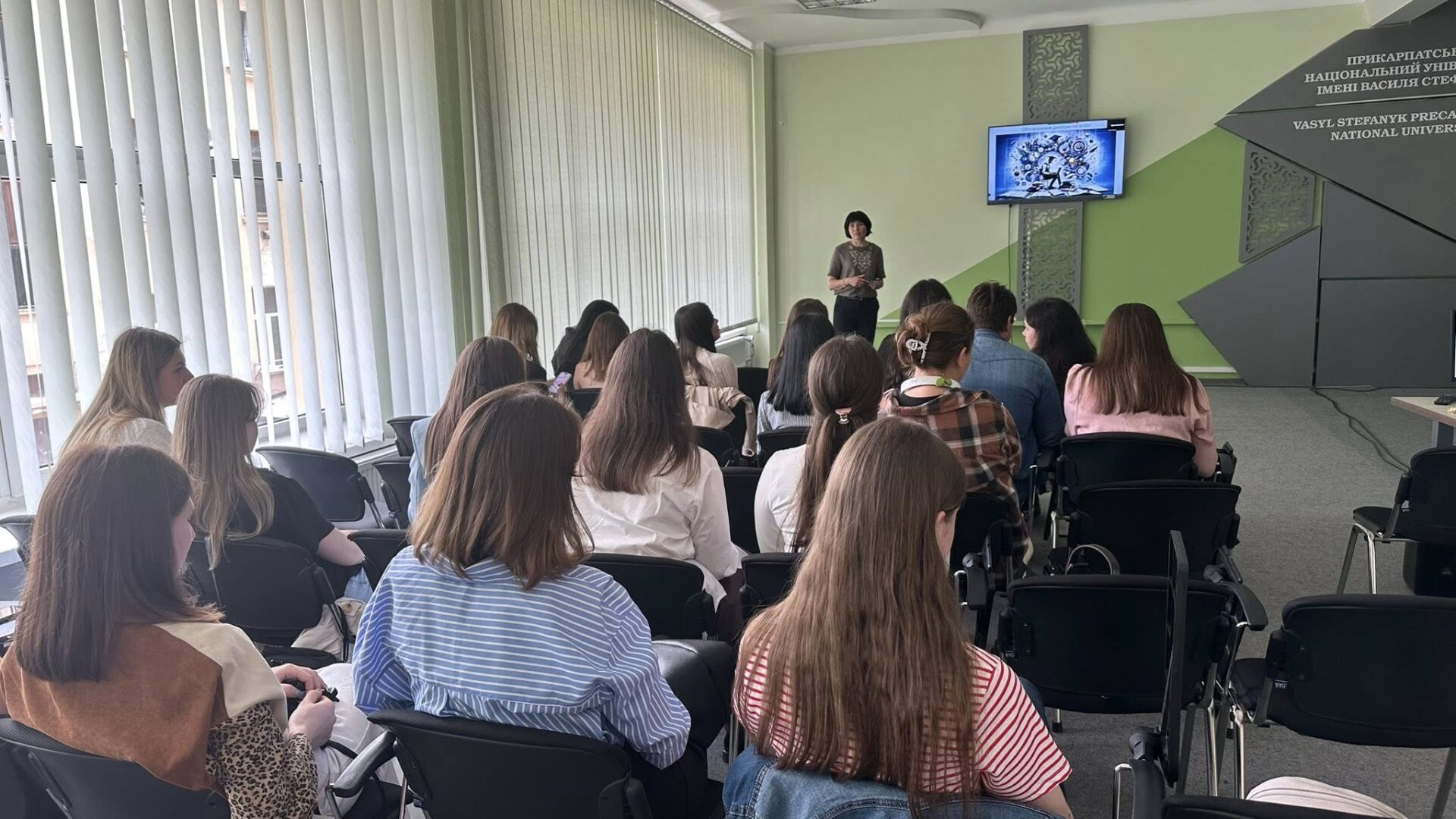Master’s students of Specialty A4.05 “Secondary Education (Biology and Human Health)” at the Faculty of Natural Sciences continue studying the educational component “Innovative Technologies in STEM Education”, which was developed and integrated into the educational program within the framework of the international ERASMUS+ MoPED project (No. 586098-EPP-1-2017-1-UA-EPPKA2-CBHE-JP). The course is designed to help educators and researchers master innovative technologies for teaching STEM subjects. Its aim is to familiarize students with the latest educational trends and methodologies for creating a research-oriented environment for STEM disciplines, including the use of online laboratories and simulations. The course equips future teachers with the theoretical knowledge and practical skills necessary to teach biology in middle and upper secondary schools as well as in institutions of professional pre-tertiary education, in line with current educational standards. The academic discipline within the project was developed and is being successfully implemented by a specialist at the Centre, Associate Professor of the Department of Biology and Ecology at the University, Viktoria Gnezdilova.
Significant attention was given to the study of modern educational technologies: Inquiry-Based Learning, Project-Based Learning, Collaborative Learning, and Dual Learning. While exploring current educational trends in teaching natural sciences and the peculiarities of applying them in the learning process, students developed lesson plans for teaching biology in grades 7, 8, and 10 using the Flipped Learning Approach, as well as instructional cards for classes in virtual laboratories.
The study of the discipline took place at the Center for Innovative Educational Technologies “PNU-EcoSystem.” During lectures and practical sessions, students worked in different areas of the innovative classroom. IT-Space was used for exploring interactive methodologies such as Flipped Learning, Project-Based Learning, Dual Learning, and Inquiry-Based Learning, as well as for mastering the methodology of creating research environments for STEM subjects (online laboratories, interactive learning environments – Inquiry Learning Spaces, and educational online games). STEAM-lab enabled the use of innovative electronic resources for information search, fostering students’ creativity, encouraging motivation for studying and integrating STEM subjects, and developing collaborative teamwork skills. Mobile Learning Space was used for creating and demonstrating individual or group presentations, conducting research, designing new lessons, and independently accessing educational resources and e-learning tools. In the Presentation Space, master’s students showcased their self-developed biology lesson plans.


